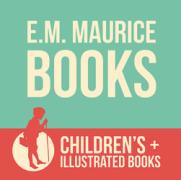Why are so many cookbooks devoted to the humble potato? American cuisine revolves around a mere handful of varieties, which most of us consume in the guise of potato chips, french fries, hash browns, mashed or baked potatoes.
What else is there? Why the need for all those cookbooks? And who the heck is buying them? Is there some sort of underground Vary Your Potato Intake movement of which I'm unaware? Should I be concerned that I'm not ingesting enough tattie scones or boxty pancakes or bryndzové halušky?
And why it is it that most folks who collect potato cookbooks seem to stop there? The humble tater, as even the most cursory review of the published literature will suggest, has so much more to offer....
Domesticated for over eight thousand years, documented in over 5000 varieties, cultivated across a wide range of climates and soil conditions, Solanum tuberosum is the world's fourth most important food crop. It's also much beloved by devotees of aquavit.
But if all most book collectors collect about potatoes is cookbooks, a large part of this versatile veggie's story is being overlooked. That's because few cookbooks delve into the potato's long and complicated history.
How many book collectors, for example, are aware of Engels' declaration that cultivation of the humble potato was every bit as historically revolutionary as the production of iron? That distribution of the potato impacted, among other things, the growth of railroads?That the potato once was considered a delicacy by Chinese royalty (and that China itself is now the world's largest producer of spuds)?
Next time a tater cookbook catches your eye, you might want to see if there are any spud histories nearby to give that cookbook some context....



